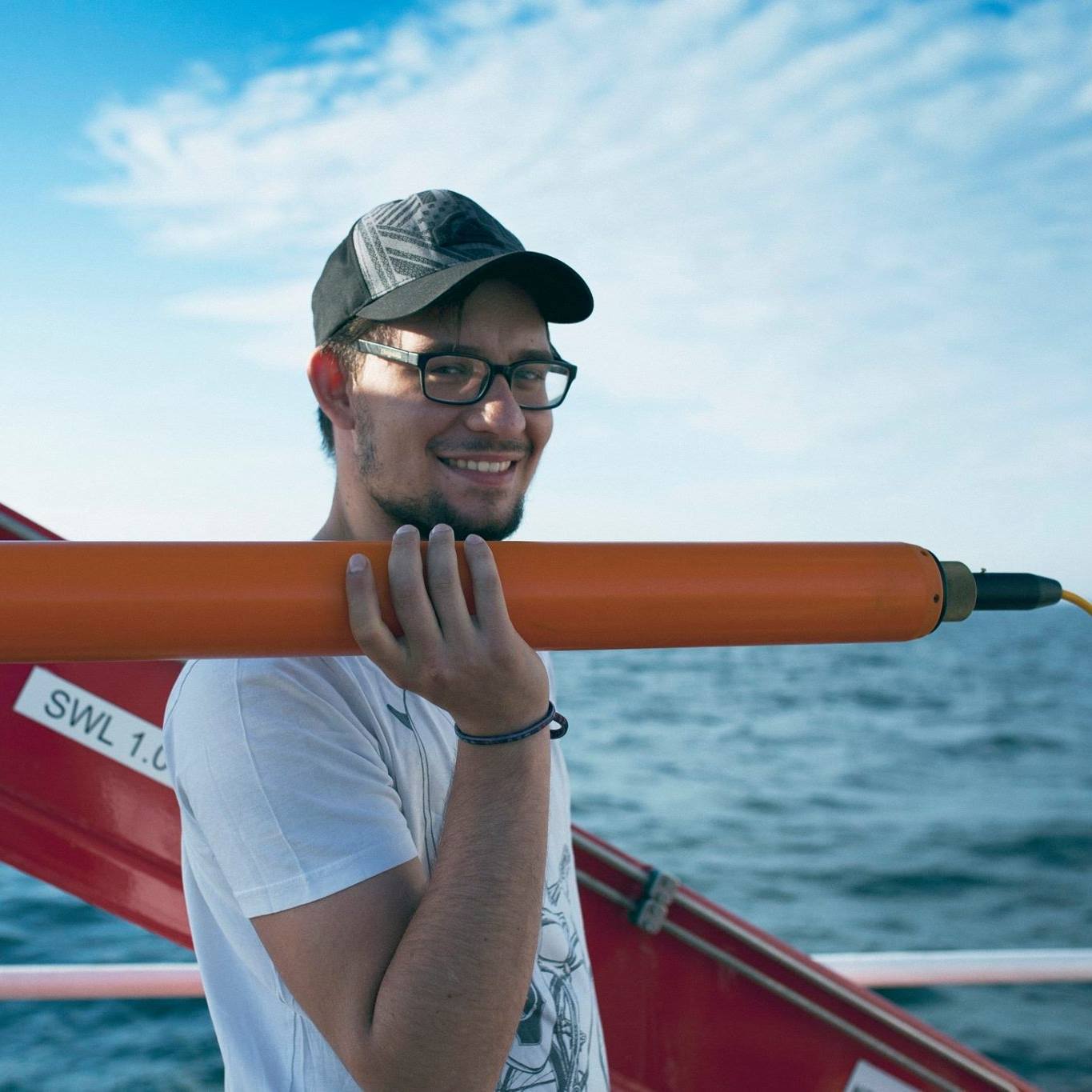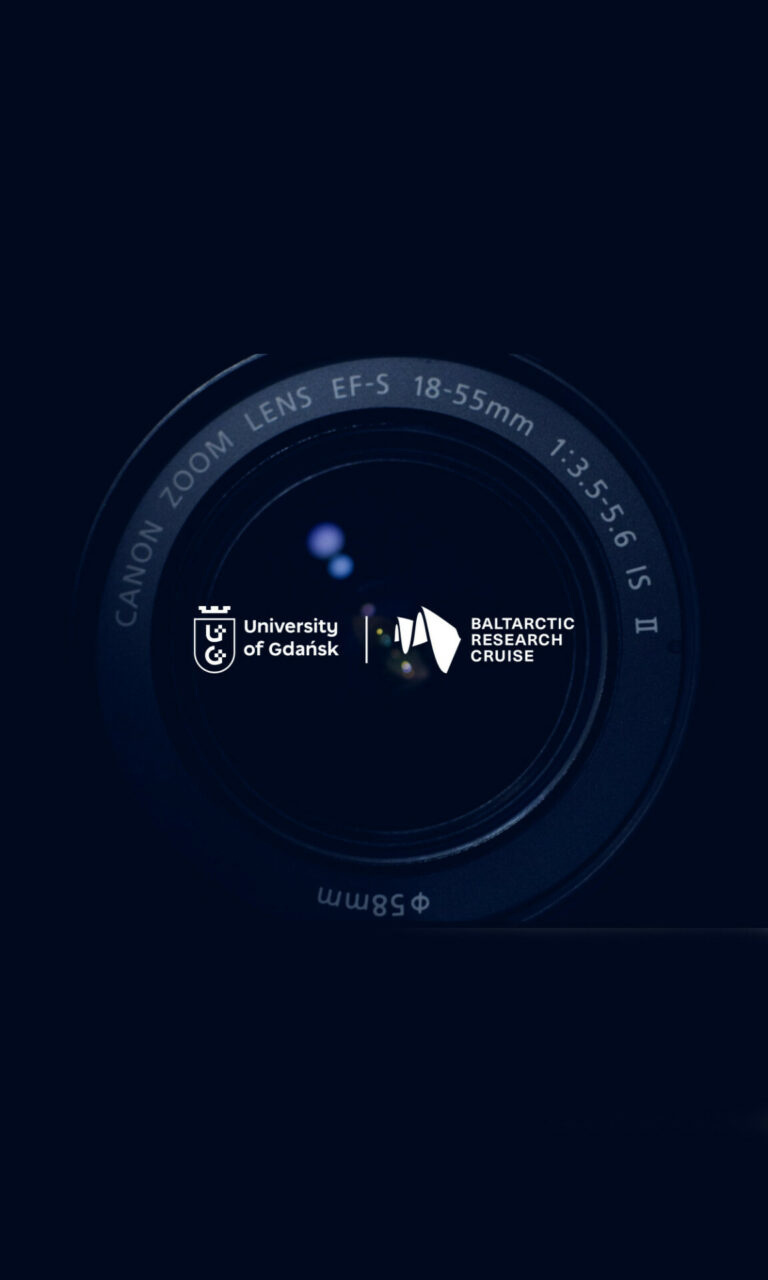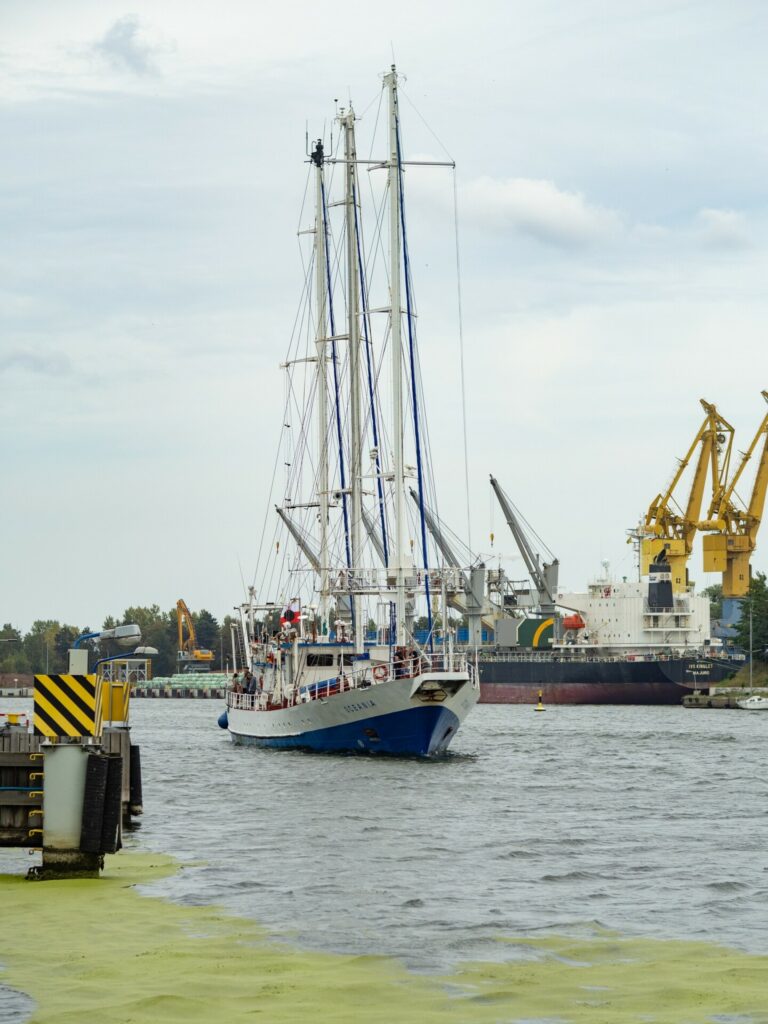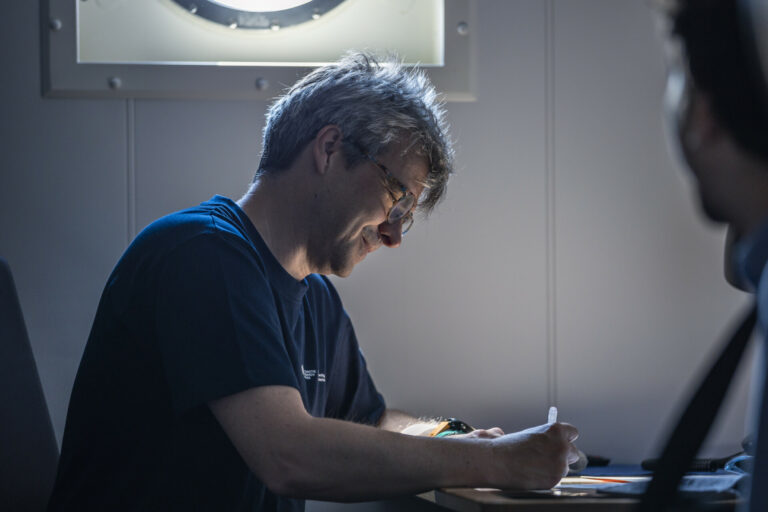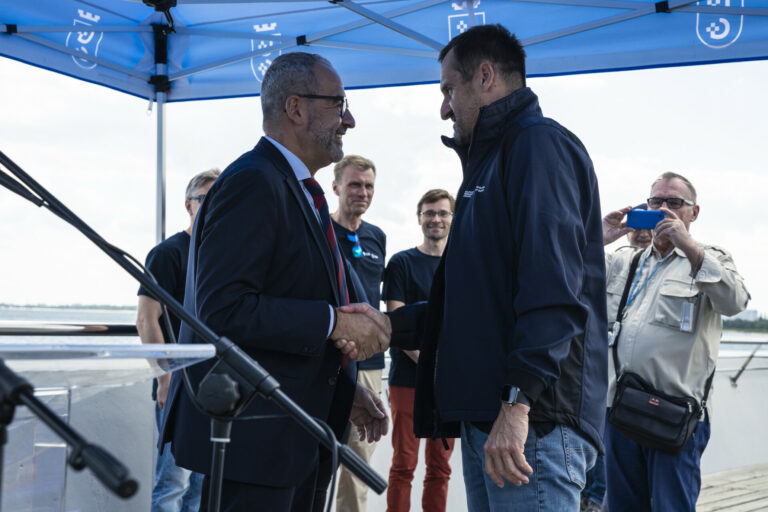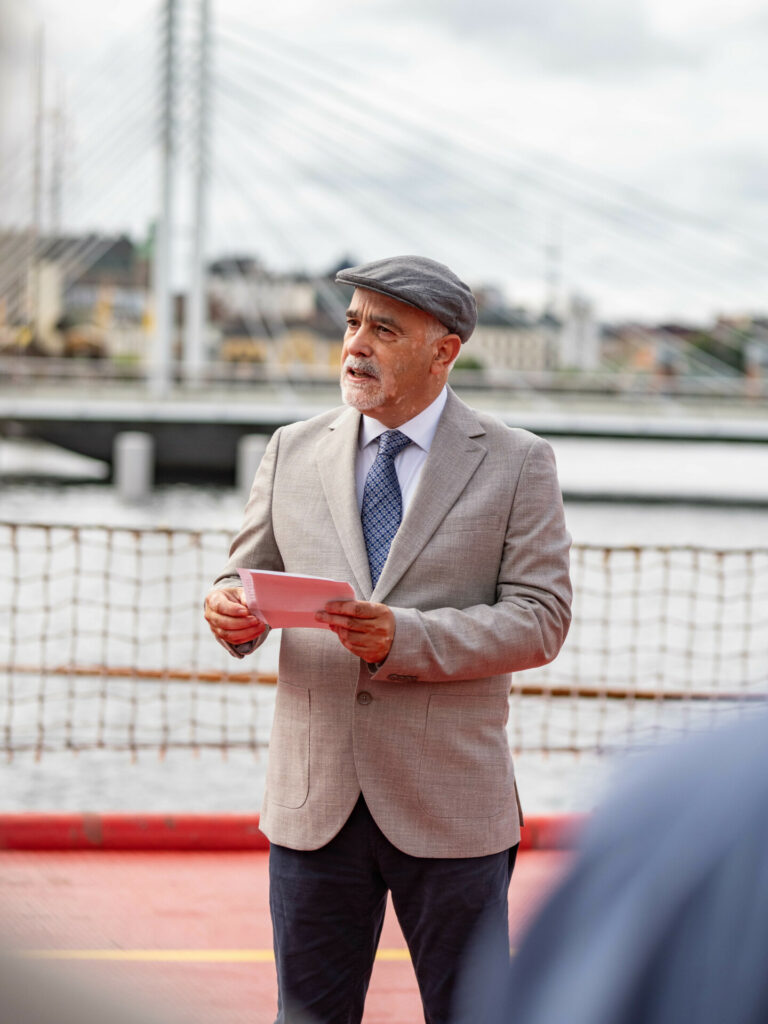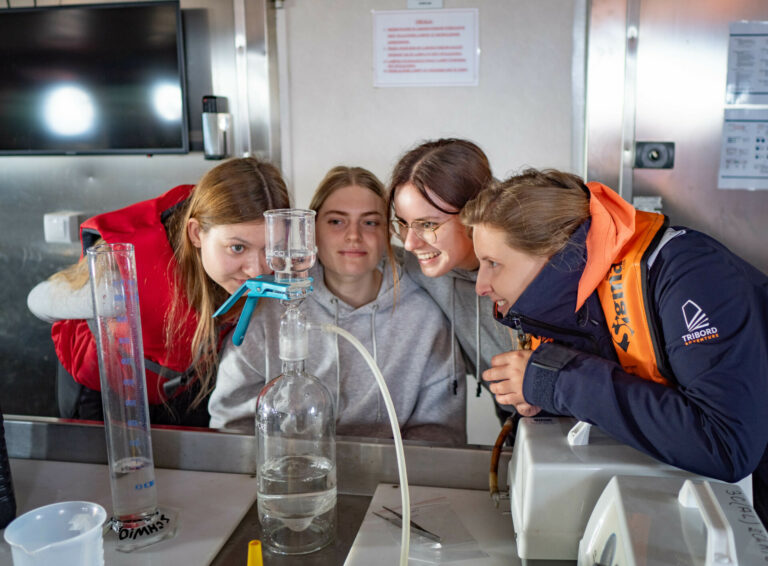Cooperation during the BaltArctic Research Cruise is at its peak as two research vessels – Oceanograf and Oceania – sail parallel to each other and collect similar samples. In a few days, both of them will arrive in Bodø. Let’s meet a few researchers on board of r/v Oceania, who work at the Institute of Oceanology PAN.
Daniel Rak
 Research area:
Research area:
Baltic Sea
Why is your research important?
My research is centered on analyzing the hydrodynamic properties of sea water and the microstructure of marine environments. This foundational analysis is critical as it supports a broad range of applications across various discipline.
What are your personal motivations?
The cruise gives me the opportunity to explore interactions that extend my usual research area. The cruise on the Baltic Sea and beyond provides a unique chance to observe and analyze phenomena that could illuminate broader ecological and hydrodynamic dependencies at both regional and global scales.
What are you going to do during the cruise onboard?
During the cruise on the r/v Oceania, I will be managing the Rosette sampling system, which includes various probes and bathymeters for collecting water samples at different depths. Additionally, I will conduct microstructural measurements to assess water properties like temperature, salinity, and turbulence.
Anna Pouch
 Research area:
Research area:
My research focuses on organic contaminants. I analyze the concentrations of these contaminants in various abiotic and biotic samples from the Baltic Sea and the Arctic to determine the impact of human activities and climate change on their presence. I also study bioaccumulation and biomagnification of contaminants in the marine trophic chain.
Why is your research important?
Marine pollutants pose a significant threat to wildlife, from plankton to large marine mammals. Contaminants can cause reproductive failures, developmental issues, and even death in marine organisms. Protecting biodiversity requires understanding the sources, spread, and impacts of pollutants.
What are your personal motivations?
A strong interest in science and a desire to understand the complex interactions between pollutants and marine environments drive me to study this field. I enjoy communicating and collaborating with other scientists. Additionally, I am motivated to increase the level of awareness among those who may not understand these issues.
What are you going to do during the cruise onboard?
During the cruise I will be responsible for collecting samples for chemical analysis.
Miłosz Grabowski
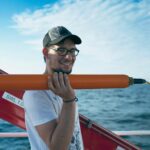 Research area:
Research area:
Hydroacoustic and the non-invasive methods of the seabed investigation
Why is your research important?
My research focuses on detecting and determining the impact of anthropogenic factors on the marine environment, particularly concerning hazardous substances present on the seabed (e.g., dumped munitions). This research helps protect marine ecosystems and the communities living in coastal areas.
What are your personal motivations?
I have always wanted to have an interesting job where I wouldn’t spend most of my time at a desk. Additionally, I like complex machines (like underwater robots), which I use daily in my work.
What are you going to do during the cruise onboard?
During the cruise, I will be operating a special type of scientific echosounder, which allows for precise detection of organisms (mainly fish and their aggregations) in the water column. Additionally, I will try to troubleshoot issues with other types of research equipment if they arise.
Violetta Drozdowska
 Research area:
Research area:
The relations between the enrichment of the sea surface microlayer in organic matter and the air-sea interaction processes as well as the sources of the organic matter in the sea.
Why is your research important?
A skillful assessment of the properties and enrichment of the sea surface microlayer on air-sea interaction processes will allow us to better estimate and predict the amount of energy (or gas) lost or retained in the biosphere.
What are your personal motivations?
Exploring knowledge about natural resources and processes taking place on the Earth is extremely interesting and important, while the sea surface microlayer is involved in all processes taking place at the sea-atmosphere interface and, additionally, on almost 71% of the surface of our planet.
What are you going to do during the cruise onboard?
I’ll sample the sea surface microlayer and subsurface water and filter and prepare for the next analysis in a land lab. I will record CTD and pH of seawater and meteorological conditions at sampling sites.
Read more about the research team on board of the r/v Oceania.
